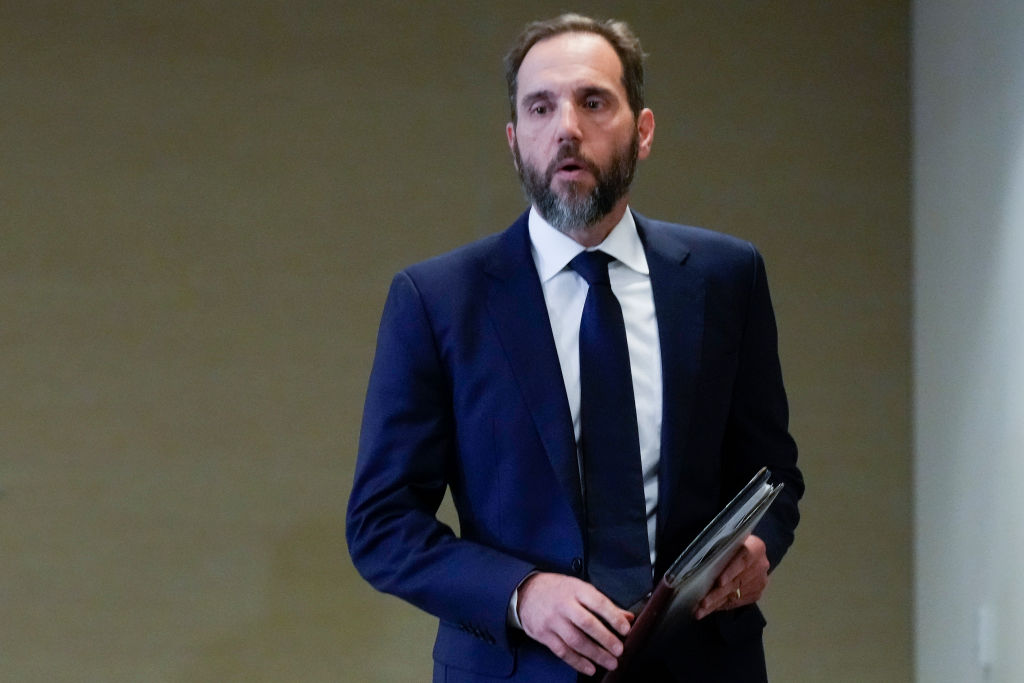It would be hard to think of something — anything — more calculated to ruin President Trump’s second term than the appointment of a special prosecutor to go after President Obama. We ran the possibilities through an Acme brand, gasoline powered Catastrophe Sifter, the fully automated model, and it came up with zilch. The conclusion is that there just isn’t anything that could damage Mr. Trump’s presidency worse than a special prosecutor.
We get that the papers — including our own — are reporting that Mr. Trump is under pressure to name a special prosecutor. Some of the pressure is from his own friends, too. The way for Mr. Trump to think of such friends is in the same sense Caesar thought of Brutus. Et tu, Archie, President Nixon no doubt thought when he was wheeled on by, in Archibald Cox, the Harvard professor Nixon had made special prosecutor in what ended up as Watergate.
The call by Senators Cornyn and Graham for President Trump to sic a special counsel on President Obama is a temptation best resisted by the 47th president. The demand for a bespoke prosecutor comes after the Director of National Intelligence, Tulsi Gabbard, accused the 44th president and his camarila of a “treasonous conspiracy” by concocting intelligence that Russia worked to elect Mr. Trump president in 2016.
Mr. Trump has also used the word “treason,” though, as we’ve often noted, the Constitution defines that crime narrowly. Ms. Gabbard has gotten the ball rolling with a criminal referral to the Department of Justice, and Attorney General Bondi vows to “investigate these troubling disclosures fully and leave no stone unturned to deliver justice.” Mr. Obama’s office contends that these “bizarre allegations are ridiculous” and a “distraction.”
Mr. Trump could reckon that unleashing a special counsel is poetic justice. He was hounded by two such prosecutors — Robert Mueller and Jack Smith — the latter of which prosecuted him in two separate cases before being thwarted by presidential immunity. Mr. Mueller’s mucking around marred much of Mr. Trump’s first term. Mr. Trump, though, eventually won another term despite — or because of — the efforts of those prosecutors, and others besides.
The record of special counsels and their predecessors — independent counsels — is a baleful one. Ken Starr’s Ahab-like pursuit of President Clinton yielded Monica Lewinsky but Mr. Clinton was acquitted by the Senate. Mr. Mueller broke the hearts of Democrats when his investigation failed to detect collusion or conspiracy. Mr. Smith was, one could say, foiled by the Constitution on the question of presidential immunity.
Then there was Special Counsel John Durham, who was elevated from a humdrum prosecutor by Attorney General Barr. In the event Mr. Durham finished his work — it took four years — probing the origins of Mr. Mueller’s investigation. Mr. Durham charged three people, two of whom were acquitted, and none of whom served a minute of time in prison. Now, Messrs. Cornyn and Graham want another prosecutor to scour the same turf.
Our objection to special and/or independent prosecutors is that it is harder for the president to fire them than ordinary prosecutors. That’s a situation that strains the plain language of the Constitution. It is solely the president who is assigned in the Constitution to take care that the laws are faithfully executed. It’s hard to see how faithful execution is possible if the president can’t freely discharge any prosecutor.
Ironically, presidential prerogative could yet protect Mr. Obama. The objection to a special prosecutor, though, was best articulated by Justice Antonin Scalia in his dissent in Morrison v. Olson. TGS opposed independent counsels as affronts to the powers of the presidency, no matter how tempting their services. “Frequently an issue of this sort will come before the Court clad, so to speak, in sheep’s clothing,” he wrote. But, he added, “this wolf comes as a wolf.”
(Except for the headline, this story has not been edited by PostX News and is published from a syndicated feed.)

